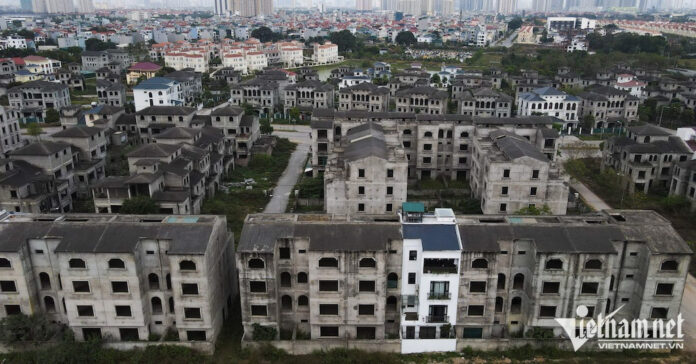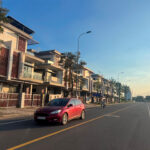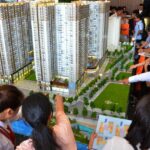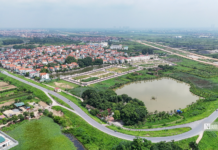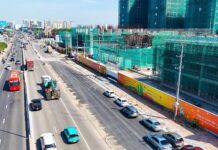Housing Market Soars as Properties Fall into the Hands of the Wealthy
The Vietnam Real Estate Brokers Association (VARS) has highlighted a growing number of vacant houses, villas, and ghost towns across the country. Even in major cities, where land is scarce and population dense, this phenomenon persists, showcasing the stark contrast between abandoned properties and the struggles of those who may never afford a home.
“This situation not only wastes land resources but also creates social inequality. With the majority of housing supply becoming increasingly scarce, it continues to fall into the hands of those with ample financial resources. They own multiple properties, sometimes even dozens or hundreds, but leave them vacant, hoarding land for future gains, driving up housing prices, and making it increasingly difficult for people to afford homes,” VARS stated.
VARS also pointed out that speculative investors are prevalent, from urban to rural areas, withholding properties when they are scarce, creating artificial scarcity, and driving up prices for profit. This practice impacts land development, supply and demand dynamics, and the long-term economy.
The association suggested that a tax should be imposed on second and subsequent properties. It is only fair that those with extensive assets, which continue to appreciate, should contribute more in taxes. In fact, most home buyers in recent times are purchasing their second or third homes.
This proposal comes amid continuously rising real estate prices with no signs of abating.
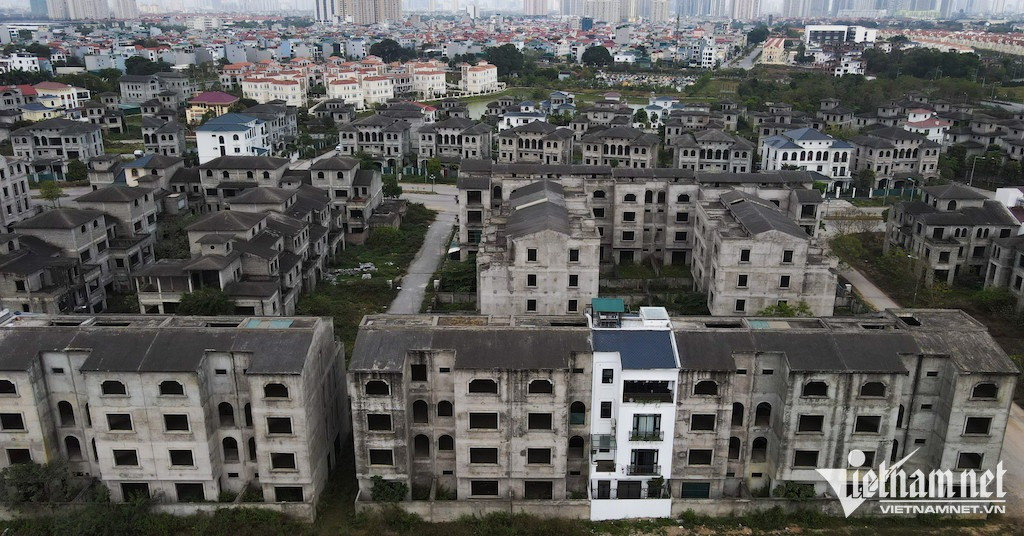
Numerous billion-dong houses are left unfinished or abandoned after completing the rough construction in Hanoi. Photo: Thach Thao |
According to VARS data, apartment prices in Hanoi and Ho Chi Minh City increased by 58% and 27%, respectively, in the second quarter compared to the same period in 2019. The supply of mid-range apartments is dwindling, and over 80% of new apartment launches this year are priced above VND50 million per square meter. Some new apartment projects even reach tens of thousands of USD per square meter.
Not only new projects but also old apartments have seen soaring prices. Many units that are decades old are advertised at two to three times their original selling price. The villa, townhouse, and suburban land segments also show signs of price increases due to the actions of certain investor groups creating artificial supply and demand.
Therefore, to regulate the market’s healthy and sustainable development, VARS emphasized the urgency of implementing real estate tax policies. “It is a challenging task, but the benefits outweigh the drawbacks,” they concluded.
Gains Outweigh Losses in Imposing Real Estate Taxes
VARS proposed real estate tax policies targeting two groups: those purchasing their second or subsequent properties and owners of vacant projects. The tax rate would increase for transactions where the seller has a shorter holding period.
For example, in Singapore, buyers must pay 20% of the property value for their second home and 30% for their third. Sellers are also subject to taxes: 6% in the first year, 8% in the second, 4% in the third, and no tax after the fourth year.
VARS also suggested imposing a tax on owners who leave their land undeveloped after acquisition, similar to the approach taken in South Korea. Land left idle or under improvement for over two years is taxed at 5%, with the rate increasing gradually to 8% for five years, 9% for seven years, and 10% for over ten years. In the US, a 3% tax is levied on vacant land…
However, the association acknowledged the challenges in using tax tools to regulate the market. It requires significant investment in technology and human resources to effectively and transparently implement such taxes. To determine which properties are second or third homes, a robust information system and real estate market database are necessary.
VARS also cautioned about potential negative impacts, such as a possible depletion of buyers’ purchasing power, long-term economic repercussions, or legal loopholes where the wealthy could evade taxes by transferring ownership of additional properties to family members or increasing rent to offset tax costs…
“Every policy has its challenges, but the benefits of imposing real estate taxes outweigh the drawbacks,” VARS asserted.
|
At a recent workshop, Mr. Phan Duc Hieu, a member of the Economic Committee of the National Assembly, emphasized the urgency of introducing real estate taxes. “Only by intervening with taxes will property prices fluctuate according to the market. Initiating this tax project will immediately impact the real estate market; if we don’t take action, we won’t solve this issue,” he stated. |
Hong Khanh
The New Real Estate Boom: Are Ho Chi Minh City Residents Ready to Spend Their Savings and Take Out Loans for Property?
The property market is booming, and potential buyers know that hesitation will only result in missed opportunities. With an increasing number of people willing to take out loans to secure their dream homes, the competition is fierce. The pressure to act fast is on, as buyers recognize that property prices and availability show no signs of decreasing.
“The Regret of Having Money but Not Investing in Real Estate”
“I was compensated for my land in the Thu Duc area over a decade ago,” shared Ms. H, reflecting on her experience.

